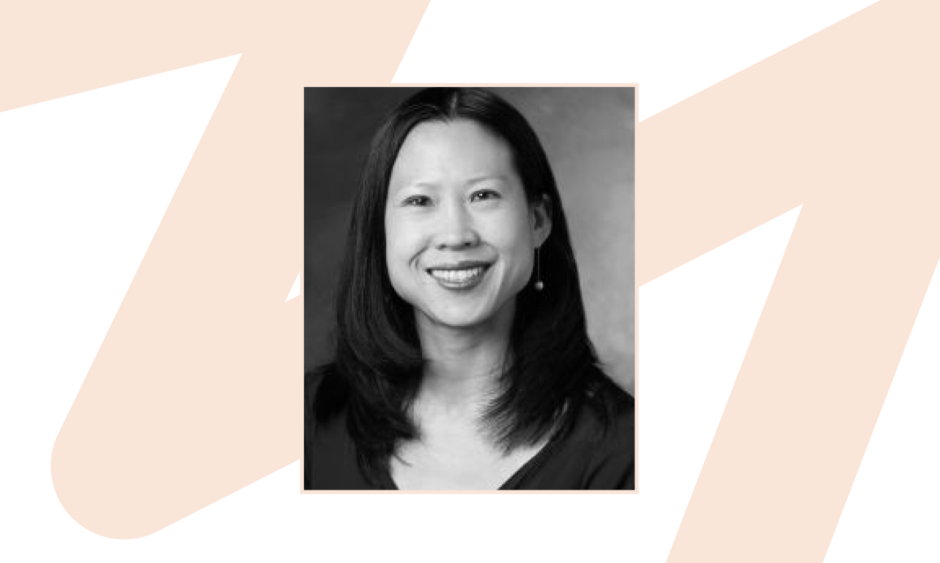Lorinda Chung | Professor of Medicine (Immunology and Rheumatology) and Dermatology, Stanford University of Medicine, California, USA.
![]()
How did your education bring you to where you are today and what motivated you to study medicine, in particular rheumatology?
My father is a physician and served as an inspiration for me and my three older sisters to go into medicine. Having attended undergraduate and medical school on the East Coast and in the Midwest, respectively, I always wanted to move to California, USA. I matched at Stanford for my internal medicine residency and fell in love with the school and the area. During my internship, my oldest sister developed a connective tissue disease, which has since evolved into systemic sclerosis. She has been my driving force for pursuing a career in rheumatology with a focus on systemic sclerosis.
As an educator, where can we expect to see your focus lie in the coming years?
My favourite part of my job is working with and mentoring trainees and junior faculty. I have mentored many residents and fellows, assisting them with attaining their career goals and initiating scleroderma programmes of their own. In the coming years, I hope to provide mentorship to visiting junior faculty from other institutions, particularly international institutions, and to guide them in the development of their own scleroderma centres or dermatology–rheumatology programmes.
Could you briefly detail how you initiated and developed the Stanford Scleroderma Program?
During my rheumatology fellowship, I partnered with David Fiorentino, a Professor of Dermatology at Stanford, to develop one of the nation’s first rheumatologic dermatology clinics. With my personal interest in systemic sclerosis, our clinic quickly attracted this patient population. We applied for funding support from the Scleroderma Research Foundation (SRF), and their continued support of our centre since 2009 has enabled us to expand and to develop key national and international research collaborations.
What is one lesson that you have learnt from leading teams of over 15 clinicians and researchers?
Everyone has something important to contribute. Therefore, it is paramount to make sure that everyone’s voices are heard and that their contributions are acknowledged.
Are there any noteworthy clinical trial designs you are currently working on?
I serve as an advisor for several industry sponsors and am assisting with protocol development for clinical trials in systemic sclerosis and Raynaud’s phenomenon, but this information is confidential.
What is your responsibility as the Director of the Women’s Rheumatology Clinic at the Palo Alto Veteran Affairs (VA) Health Care System?
I developed the Women’s Rheumatology Clinic at the Palo Alto VA in 2009 to cater to the growing population of female veterans. This clinic, in combination with other women’s health subspecialty clinics, serves to provide continuity of care and comprehensive medical care to female veterans, with a focus on their particular needs.
Is there a rheumatic condition that you are particularly interested in and that you believe has a lack of awareness?
As I mentioned previously, serving as a mentor for trainees is the most fulfilling aspect of my job, and I received the Teaching Award from the Department of Medicine at Stanford in both 2014 and 2019. I was also nominated by several former mentees for the American College of Rheumatology (ACR) Excellence in Investigative Mentoring Award in 2020. Although I was not awarded that year, it was an incredible honour to be nominated by my former mentees.
If you were to change one thing about your field, what would it be and why?
That we could cure patients of their autoimmune diseases. Although we have many effective therapies for patients with rheumatic diseases, we still do not have any cures, and most of our patients must continue to live with symptoms related to their chronic diseases.
Are there any innovations on the horizon in the field of rheumatology that you think are particularly noteworthy?
Chimeric antigen receptor T cells targeting B cell surface antigens are being explored as a novel treatment strategy in autoimmune diseases. This strategy holds promise to induce sustained remission of autoimmune diseases, and clinical trials for this are currently being initiated.








